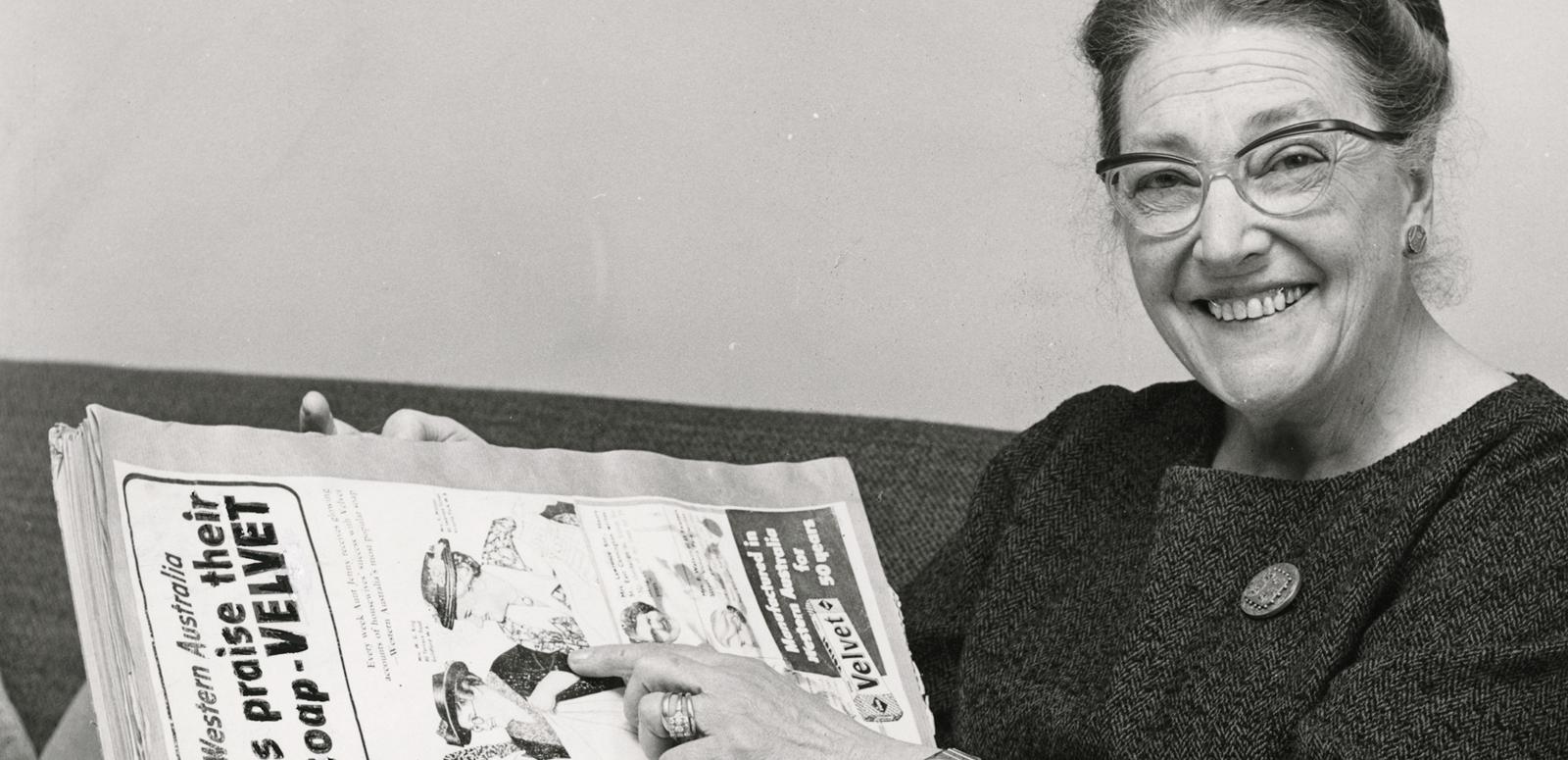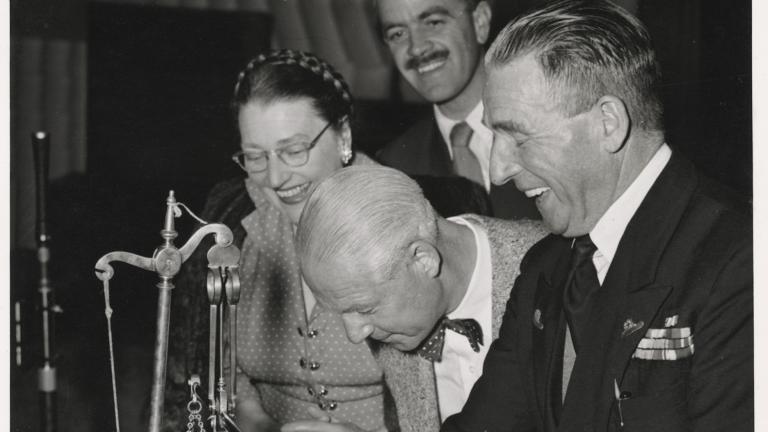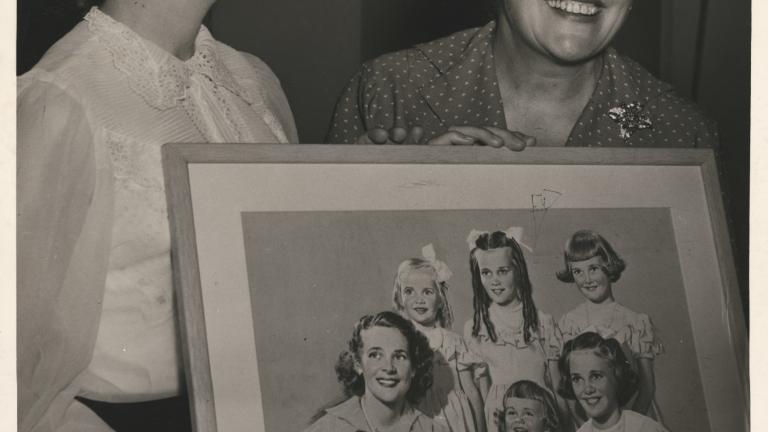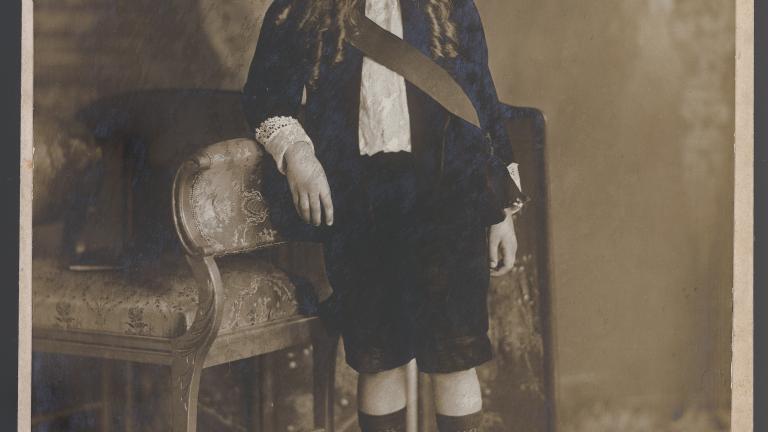Women played an important role during Australia’s early years of radio broadcasting. We look at the pioneering contribution of Ethel Lang.

Women played an important role during Australia’s early years of radio broadcasting. We look at the pioneering contribution of Ethel Lang.
Ethel Lang was born in Sydney in 1902. Lang performed on stage at the age of seven, when she took over the part of Napoleon’s son in The Royal Divorce. By the start of the First World War, Lang was busy performing in school plays and concerts.
In 1923 she married James Brunton Gibb, who served in the war and had become a member of a celebrated musical group called the Anzac Coves. On his return from overseas he became an actor and a teacher of speech. He and Ethel appeared together in concert, recital and dramatic work.
Ethel Lang played leading ladies for ABC radio all through the 1930s, including Portia in The Merchant of Venice, Lady Macbeth in Macbeth and the leading role of Jane Marryot in Noël Coward’s Cavalcade. She also worked extensively with 2SM and 2GB.
Listen to a clip of Ethel Lang in The Hidden Truth, a radio series adapted from American scripts starring the inventor of the lie detector, who uses his own invention to solve crimes:
Ethel Lang in The Hidden Truth, a radio series adapted from American scripts starring the inventor of the lie detector using his own invention to solve crimes. Produced by Hilda Scurr, c1960. NFSA title: 675730
In 1943, Lang began broadcasting her own program, Aunt Jenny’s Real Life Stories. Aunt Jenny (Lang) and her nephew, Jimmy, played by John Hudson, would have a cup of tea and listen to the stories of Aunt Jenny’s life, dramatised by actors.
Listen to an early episode of Aunt Jenny’s Real Life Stories from 1943:
Ethel Lang in Aunt Jenny’s Real Life Stories, 1943. NFSA title: 402636

During the Give It A Go radio program in 1943, Ethel Lang (as Aunt Jenny) and Jack Davey prove that sponsor Velvet Soap is ‘worth its weight in gold’. NFSA title: 355466. Click image to open

Ethel Lang as Aunt Jenny presents a family portrait as a major prize to Mrs I Callaghan in one of the Give It a Go radio specials with Jack Davey in 1943. NFSA title: 354414

Ethel Lang aged seven in 1909 in Julius Knight’s stage production of A Royal Divorce. NFSA title: 352351
Aunt Jenny’s Real Life Stories, a commercial program made for Velvet Soap, ran for 18 years until 1961 and made Ethel Lang a household name.
Her other long-running engagements were as Mrs Lawson in The Lawsons and as Meg MacArthur, one of the main roles in Blue Hills.
Lane, Richard and National Film and Sound Archive of Australia, 1994, The Golden Age of Australian Radio Drama 1923-1960: A History Through Biography, Melbourne University Press, Carlton South, Vic
This article was first published in 2013. The text was updated in 2023.
Want to be the first to hear stories and news from the NFSA?
Subscribe to our newsletter and never miss out.
The National Film and Sound Archive of Australia acknowledges Australia’s Aboriginal and Torres Strait Islander peoples as the Traditional Custodians of the land on which we work and live and gives respect to their Elders both past and present.